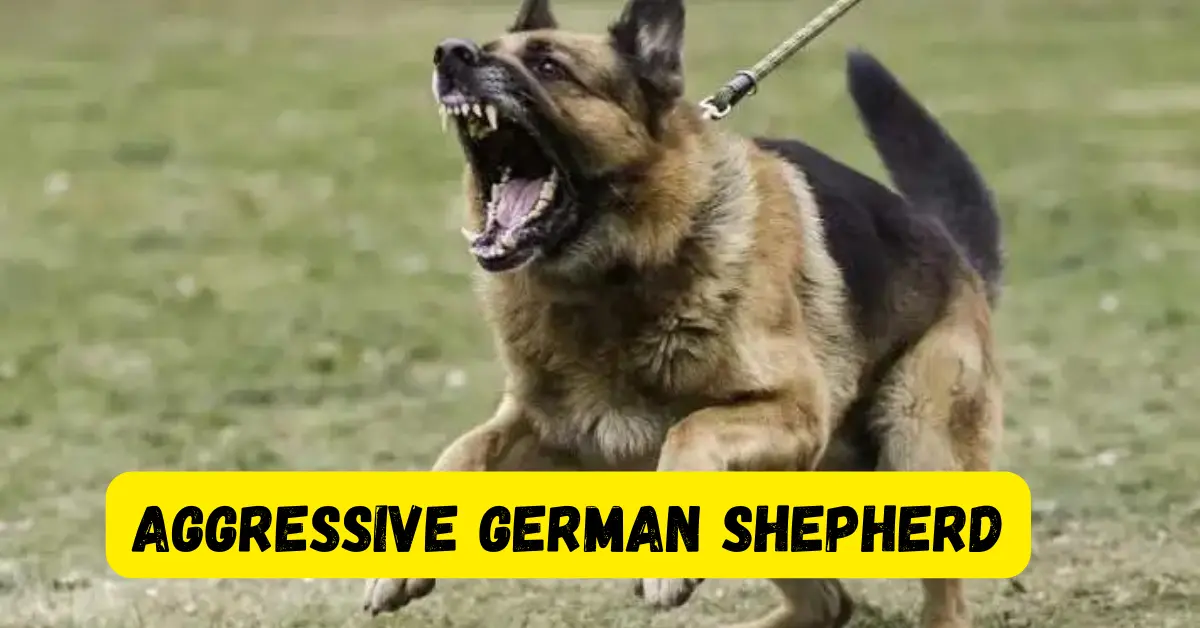German Shepherds are renowned for their intelligence, loyalty, and versatility, making them one of the most popular dog breeds worldwide. However, there are instances where these majestic canines display aggression, leaving their owners puzzled and concerned. Understanding the root causes of antagonism in German Shepherds is essential for effective management and training. In this article, we delve into the factors contributing to aggressive behavior, the worst age for aggression, methods for socialization, interactions with other dogs, and potential solutions for dealing with an aggressive German Shepherd.
Factors Contributing to Aggressive Behavior
Antagonism in German Shepherds can stem from a variety of factors, both genetic and environmental. Genetics plays a significant role, as certain bloodlines may have predispositions to aggression due to poor breeding practices. Additionally, a lack of proper socialization during a German Shepherd’s critical developmental stages can result in fear-based aggression. Medical conditions, pain, fear, anxiety, and past traumatic experiences can also trigger aggressive behavior.
The Worst Age for Aggression is Adolescence
German Shepherds, like all dogs, go through different life stages that influence their behavior. Adolescence, which typically occurs between six months to two years of age, can be the most challenging period for aggression. Hormonal changes and a surge in energy during this time can intensify territorial and protective instincts, potentially leading to aggressive behaviors. Understanding this phase is crucial for managing and addressing aggression effectively.
Socializing the Aggressive German Shepherd
Proper socialization is key to preventing and reducing aggression in German Shepherds. Socialization should begin early and involve exposing the dog to various people, places, and situations in a positive and controlled manner. Gradual exposure to different stimuli helps build confidence and reduces the likelihood of fear-based aggression. Engaging in obedience classes, controlled playdates, and supervised interactions with other dogs can contribute to a well-socialized and balanced German Shepherd.
Are German Shepherds Aggressive Towards Dogs?

German Shepherds are known for their strong prey drive and protective instincts, which can influence their interactions with other dogs. While not all German Shepherds are inherently aggressive towards dogs, early socialization plays a crucial role in determining their behavior. Proper introductions, positive reinforcement, and monitoring interactions can help prevent aggressive tendencies toward other canines.
Dealing with Aggressive German Shepherd
Addressing antagonism in a German Shepherd requires patience, dedication, and professional guidance. Consulting a veterinarian and a qualified dog behaviorist is essential to rule out any underlying medical issues and develop a tailored behavior modification plan. Positive reinforcement training methods, consistent boundaries, and proper management techniques can help redirect aggressive behaviors. It’s crucial to understand that aggression cannot be resolved overnight and requires a long-term commitment to training and rehabilitation.
Solutions to Aggressive German Shepherd Behavior
Certainly, dealing with aggressive behavior in a German Shepherd requires a comprehensive approach that involves both professional guidance and consistent training. Here’s a detailed explanation of each aspect:
1. Consult Professionals: Begin by consulting with a veterinarian to rule out any medical causes for Attacking. Once medical issues are ruled out, seek the expertise of a certified dog behaviorist. They can assess the dog’s behavior, identify triggers, and design a personalized behavior modification plan.
2. Positive Reinforcement: Use positive reinforcement techniques to reward and praise your German Shepherd for exhibiting desired behaviors. This encourages the dog to associate good behavior with positive outcomes. Treats, toys, and verbal praise can be effective rewards.
3. Behavior Modification: Work with a behaviorist to implement behavior modification techniques. Gradual exposure and desensitization involve exposing the dog to triggering situations or stimuli in a controlled and gradual manner. This helps the dog learn to remain calm and relaxed in the presence of these triggers.
4. Consistent Training: Establish clear boundaries and consistent commands. Use commands like “sit,” “stay,” and “leave it” to assert your authority and maintain control over your dog’s actions. Consistency is key to preventing confusion and anxiety in your dog.
5. Structured Environment: Dogs, especially German Shepherds, thrive in structured environments. Create a routine that includes regular feeding times, exercise sessions, and training sessions. Predictability helps reduce anxiety and provides a sense of security for your dog.
6. Exercise and Mental Stimulation: German Shepherds are high-energy breeds that require ample physical exercise and mental stimulation. Engage in daily walks, play sessions, and interactive games. Puzzle toys and training activities can help challenge your dog’s mind and redirect their energy positively.
7. Medication: In severe cases of antagonism, your veterinarian might prescribe medication to help manage the dog’s anxiety or aggression. Medication should only be used under the guidance of a veterinarian and as part of a comprehensive behavior modification plan.
8. Socialization: Expose your German Shepherd to various people, dogs, and environments from a young age. Proper socialization helps prevent fear-based aggression and helps your dog feel comfortable in different situations.
9. Avoid Punishment: Avoid using harsh punishment methods, as they can exacerbate aggression and fear. Positive reinforcement is more effective in building trust and modifying behavior.
10. Patience and Time: Changing attacking behavior takes time and patience. Consistently apply the techniques, and understand that progress may be gradual. Celebrate small victories along the way.
Remember, every dog is unique, and aggression can have various underlying causes. Working closely with professionals and tailoring your approach to your German Shepherd’s specific needs is crucial for successfully addressing aggressive behavior.
Conclusion
Aggressive behavior in German Shepherds is a multifaceted issue influenced by genetics, environment, and developmental stages. Recognizing the worst age for aggression and focusing on proper socialization are crucial steps in addressing this problem. With dedicated training, professional guidance, and a commitment to understanding the underlying causes, owners can help their aggressive German Shepherds lead happier, well-adjusted lives.
FAQs
Can aggression in German Shepherds be completely eliminated?
Complete elimination of aggression is not always guaranteed, but with proper training and management, aggressive behaviors can be significantly reduced.
Should I avoid adopting a German Shepherd due to its potential for aggression?
No, proper training, socialization, and responsible ownership can help prevent and manage aggression in German Shepherds.
Are neutering/spaying effective in reducing aggression?
Neutering/spaying can have some impact on aggression, but it’s not a guaranteed solution. Consult a veterinarian for guidance.
Can I train my aggressive German Shepherd myself?
While basic training can be done by owners, dealing with aggression often requires professional expertise to ensure safety and effectiveness.

